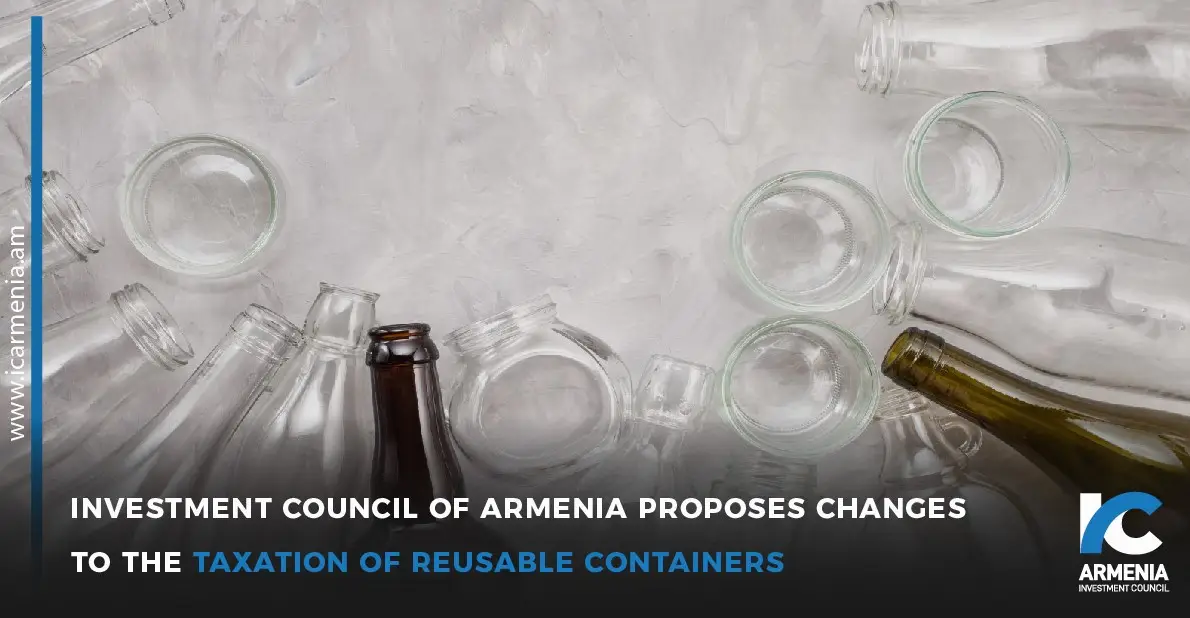19th December 2022
Changes to the system of taxation of reusable containers
Tax Code
Sub-Council

RA Tax Code stipulates that disposal of reusable containers is exempted from VAT. This regulation was aimed at encouraging the use of reusable containers, ensuring environmental protection, given that it would ensure the use of reusable containers as much as possible. However, in practice, there are a number of problems related to the application of this regulation. Companies, using reusable containers generally make sales through distributors whose sales are not exempt from VAT. VAT is also levied on return (resale) transactions of recyclable containers, regardless of whether the sale is made to distributors or producers. That is, even if the sale by the producer is exempt from the VAT, this regulation doesn’t include the whole chain and the return of the same reusable container is taxed as many times as it is circulated. As a result, some businesses have abandoned the mechanism of circulating their containers and are constantly buying new containers and introducing them to the market.
The problem is slightly different in restaurant sector (public food facilities), where producers, usually when selling goods, do not sell recyclable containers, but provide them for storage with the condition of later return by various mechanisms.
This creates unnecessary economic costs in terms of spending on newly acquired containers instead of the ones subject to circulation. Moreover, these containers are mainly imported and do not create additional value within the country. Despite the existence of businesses involved in the collection and return of recyclable containers, some of the containers remain as waste and create environmental problems. The part that is collected from waste and sold to a canned product producer incurs additional costs for further use and is more often unsuitable.
After holding a number of consultations with the business community, the Investment Council of Armenia jointly with the RA Ministry of Economy has developed a new package of regulations proposing amendments to the Tax Code, stipulating that a reusable container is not considered expropriated, if in all stages of the circulation of products contained therein the contract or settlement document stipulates that the product manufacturer shall retain the ownership of the container, and the container shall be subject to return to the product manufacturer, either directly or through the product reseller.
The project aims at creating conditions for the circulation of reusable containers as much as possible. Thus, this project will contribute to the purchase of new containers as little as possible, reducing additional financial and environmental problems for the economy.
In particular, it was calculated that as a result of the adoption of the proposed package of regulations, as a result of multiple use, the purchase of new containers can be reduced by about 20 million, which will save about 3 million US dollars. The benefit from the environmental point of view will be the decrease in the volume of carbon dioxide emissions into the atmosphere by about 5000 tons per year as a result of the decrease in the demand for glass containers.